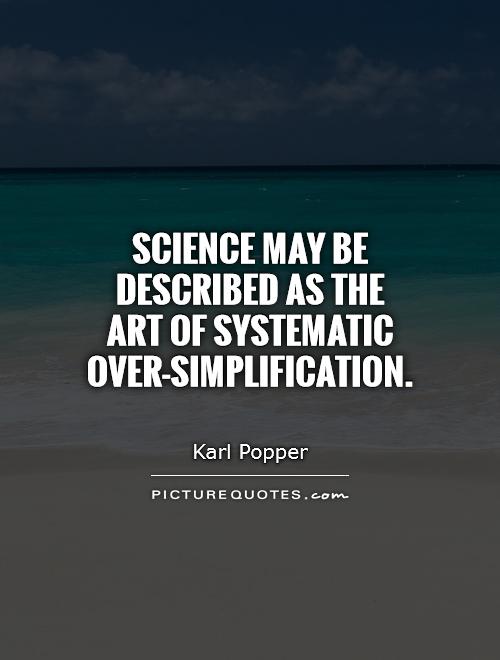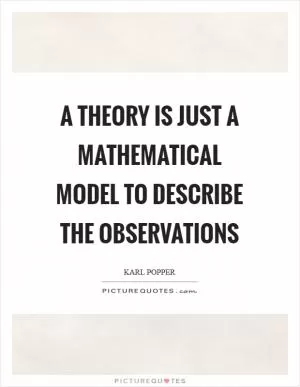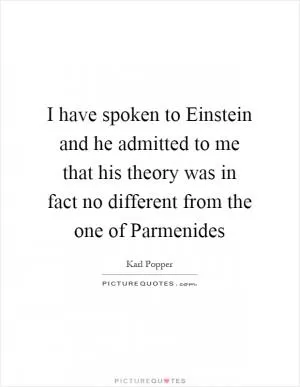Science may be described as the art of systematic over-simplification

Science may be described as the art of systematic over-simplification
Karl Popper, a renowned philosopher of science, once famously said, “Science may be described as the art of systematic over-simplification.” This statement encapsulates the essence of the scientific method and the process of simplifying complex phenomena in order to understand and explain them. Popper believed that science is a continuous process of simplifying and refining our understanding of the natural world through the creation and testing of hypotheses.In the context of Popper’s words, it is important to understand that science is not about finding ultimate truths or absolute certainty, but rather about creating models and theories that can explain and predict natural phenomena. These models are necessarily simplified representations of reality, as they must abstract away the countless variables and complexities that exist in the world. By simplifying these complexities, scientists are able to make sense of the world and develop theories that can be tested and refined through experimentation and observation.
Popper’s emphasis on systematic over-simplification highlights the iterative nature of the scientific process. Scientists create simplified models and theories to explain a particular phenomenon, and then test these theories through experimentation. If the results of the experiments do not match the predictions of the theory, then the theory must be revised or discarded. This process of falsification is central to Popper’s philosophy of science, as it allows for the continual refinement and improvement of scientific knowledge.
Furthermore, Popper’s words also underscore the importance of skepticism and critical thinking in science. By acknowledging the limitations of our knowledge and the simplifications inherent in scientific theories, scientists are able to remain open to new evidence and alternative explanations. This willingness to challenge and revise existing theories is what drives scientific progress and allows for the development of more accurate and comprehensive models of the natural world.












 Friendship Quotes
Friendship Quotes Love Quotes
Love Quotes Life Quotes
Life Quotes Funny Quotes
Funny Quotes Motivational Quotes
Motivational Quotes Inspirational Quotes
Inspirational Quotes